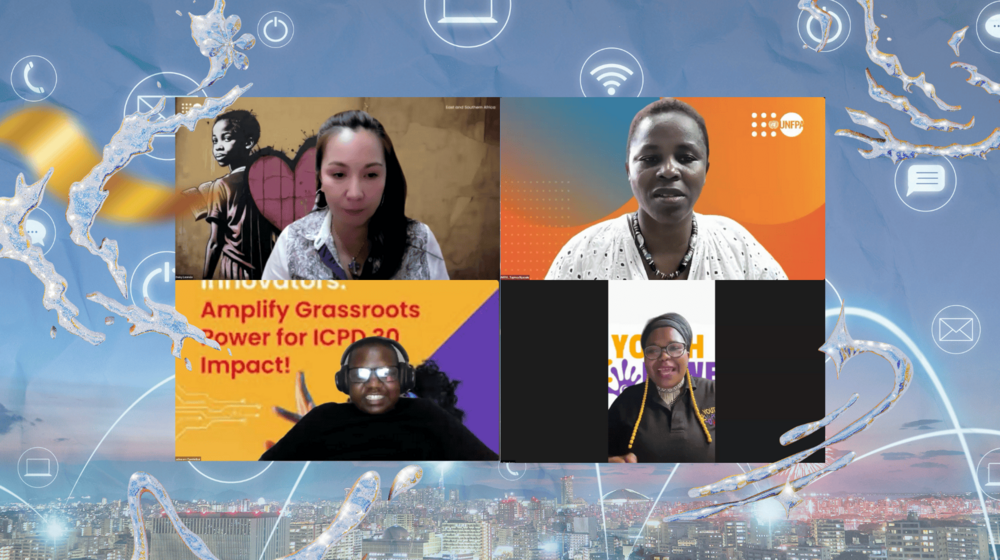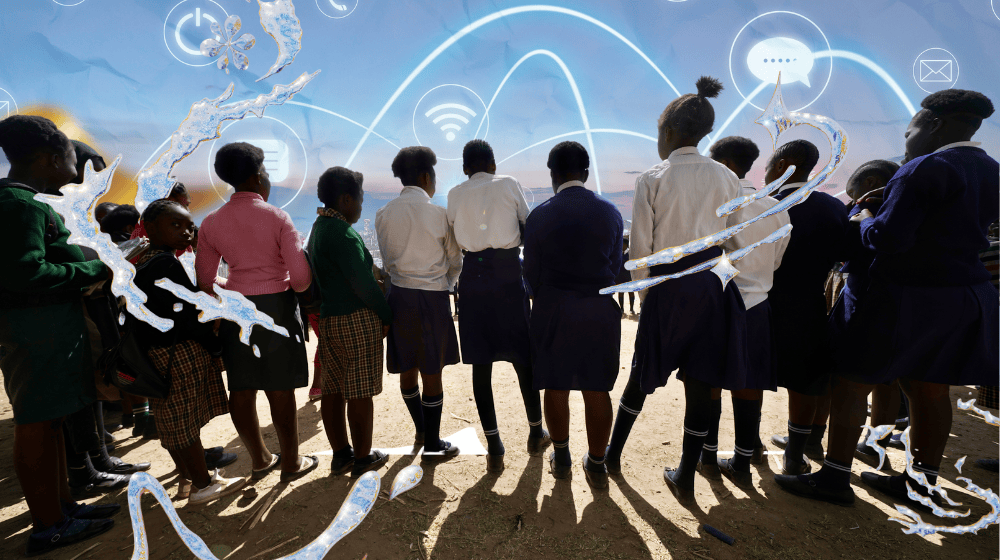JOHANNESBURG, South Africa - As the annual 16 Days of Activism concluded, a new wave of youth-led interventions took center stage across sub-Saharan Africa, targeting the growing threat of technology-facilitated gender-based violence (TFGBV).
Through podcasts, specialized training sessions, and digital innovation contests, the Youth Power Hub (YPH), in partnership with Y-Act, AfriYAN ESA and UNFPA East and Southern Africa, equipped young advocates to raise awareness, demand accountability, and ensure that the digital realm remains safe for all.
TFGBV involves using online platforms and digital tools to intimidate, silence, and harm women and girls. This includes acts such as cyberbullying, sextortion, image-based abuse, and other forms of harassment that can spread rapidly, and can cause profound psychological and social harm. According to a recent survey by CNN As Equals and Plan International, three-quarters of 624 interviewed girls and young women reported having experienced harmful online incidents, many encountering unwanted sexual content and even direct threats of physical or sexual violence. These incidents can restrict women’s ability to engage in public discourse and limit their opportunities in education, employment, and politics.

In response, YPH and UNFPA staged a series of targeted efforts during the 16 Days of Activism to combat TFGBV. One highlight was a masterclass on digital literacy that brought together more than 70 youth leaders. During the session, participants learned practical skills for identifying TFGBV, protecting themselves and others online, and making use of reporting mechanisms and cybersecurity tools.
In addition, the Power Up! podcast was streamed on International Human Rights Day, which featured personal testimonies and expert insights from UNFPA specialists, including Gender and Human Rights Advisor Dr. Tapiwa Nyasulu and Communications Advisor Daisy Leoncio. Both experts stressed the importance of accessible, culturally sensitive education that would enable girls and young women to navigate digital spaces safely and confidently.
Youth engagement also extended to the Digital Innovation Call 2024, a competition that coincided with the 30th anniversary of the International Conference on Population and Development. Young innovators from across the region submitted ideas for tackling TFGBV and related challenges around gender equality and sexual and reproductive health rights. Out of 55 submissions, 15 finalists showcased their projects, and three winners emerged with initiatives that generated remarkable online traction. Their efforts demonstrated that digital tools, when harnessed creatively, can serve as a force for good in the fight against TFGBV.
Throughout these events, experts emphasized the need for strong legal frameworks that protect users, hold perpetrators accountable, and require technology companies to prioritize user safety. They called for the adoption of safety-by-design principles, improved reporting mechanisms, and privacy safeguards. This would be coupled with equipping local communities, including parents, teachers, cultural leaders, and civil society groups, to foster respectful online behavior and raise awareness of digital rights. Expanding mental health support and self-care services for victims was also viewed as an essential part of a holistic solution.
Inspired by what they learned, the youth leaders attending the masterclass pledged to take concrete steps to address TFGBV in their communities and networks. They committed to reporting incidents of online violence, challenging companies with inadequate data privacy policies, and holding policymakers accountable for implementing gender-based violence laws and regulations. Many plan to conduct their own digital literacy sessions, encourage open dialogues in schools and community centers, and work closely with families and spiritual leaders to build a culture of safety and respect online. They also promised to use social media as a tool for constructive advocacy, calling attention to policy gaps and pressuring stakeholders to deliver more inclusive, secure virtual environments.
As the 16 Days of Activism drew to a close, the message from youth leaders was that the momentum should not end here. They made clear that the fight against TFGBV requires ongoing action, from legislative changes and corporate responsibility to community-level education and survivor support. In the months ahead, these young advocates will continue driving efforts toward a future where every girl and young woman can realize the full benefits of technology without fear, enjoying a digital world that is inclusive, accessible, and just.


